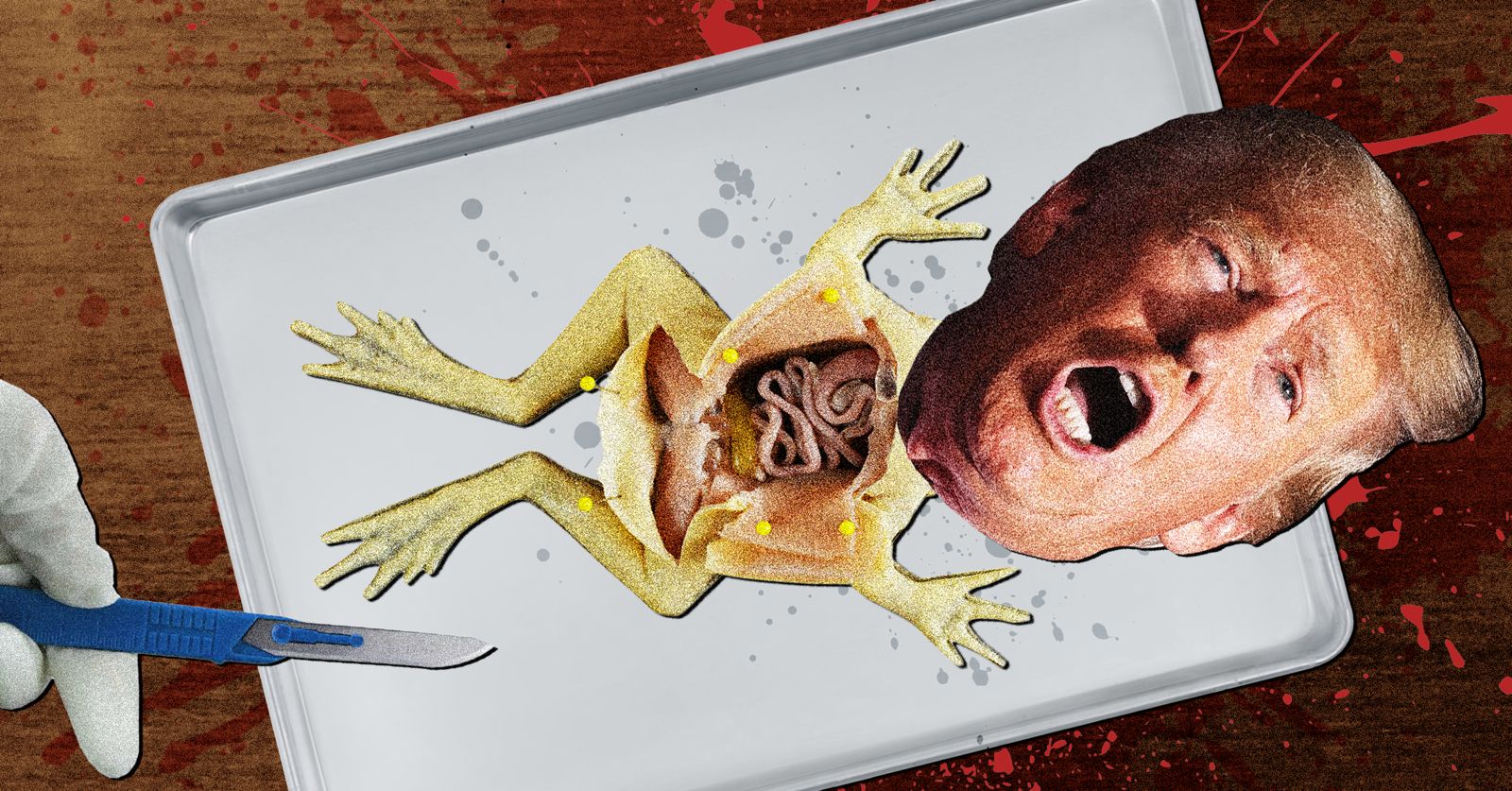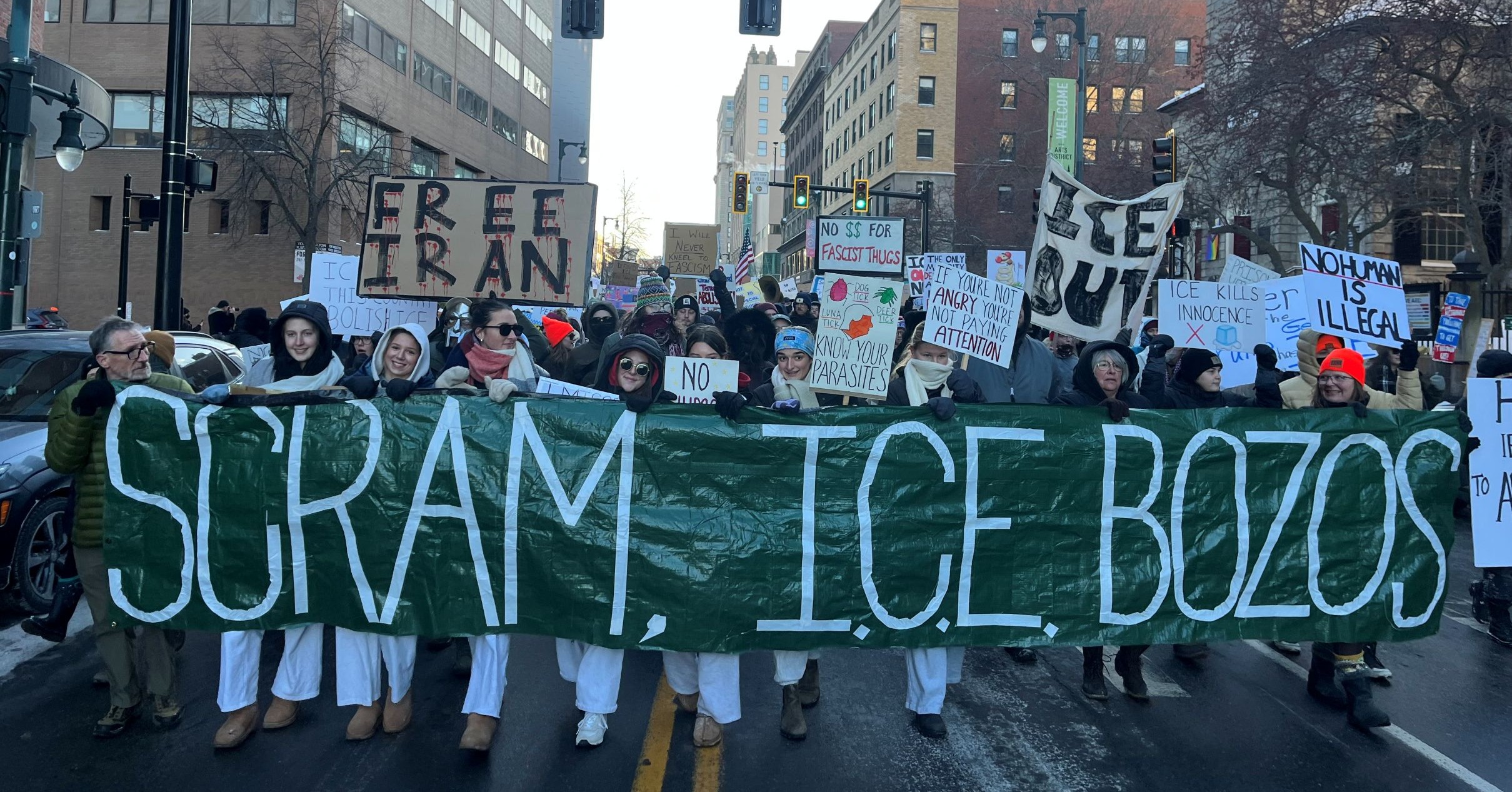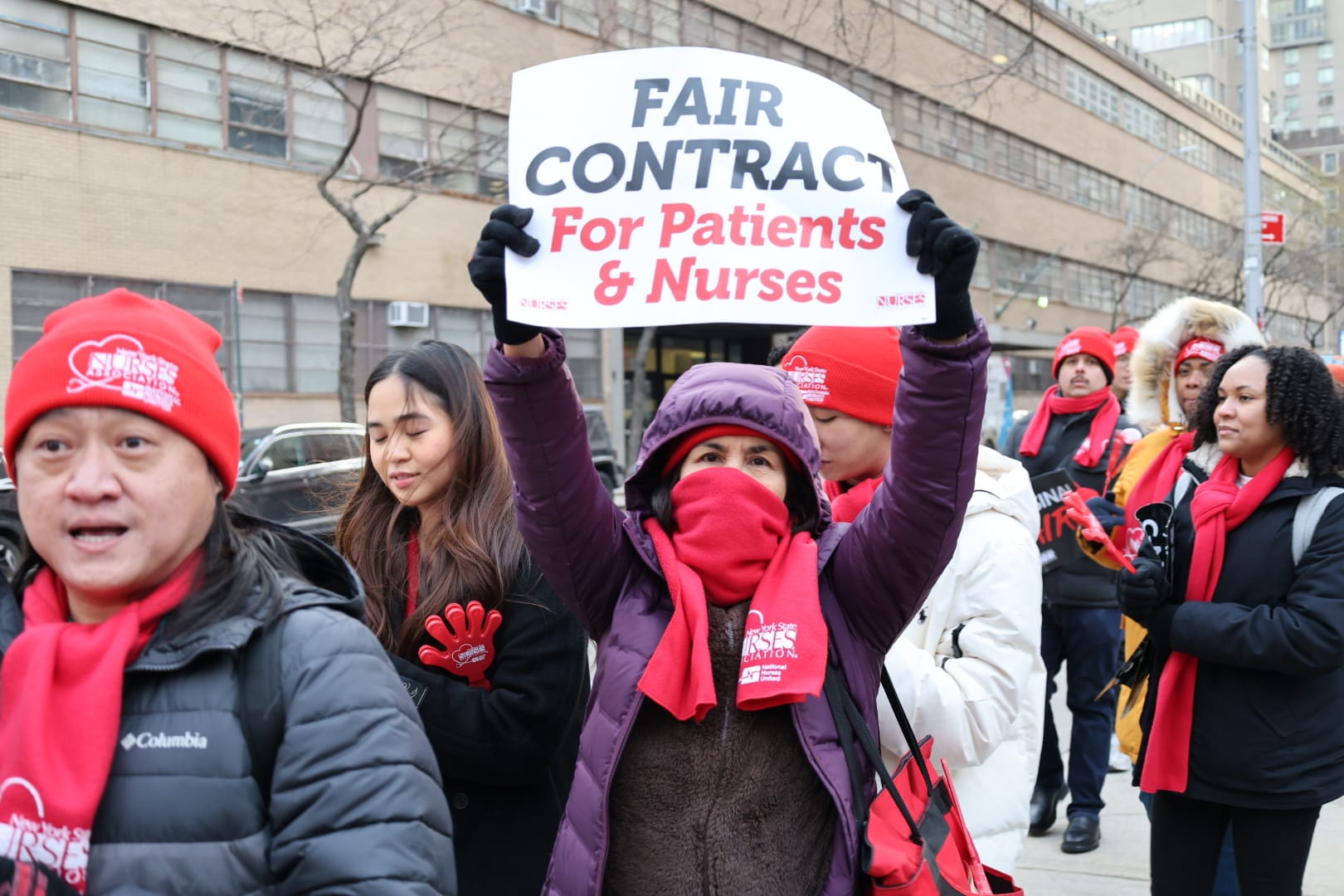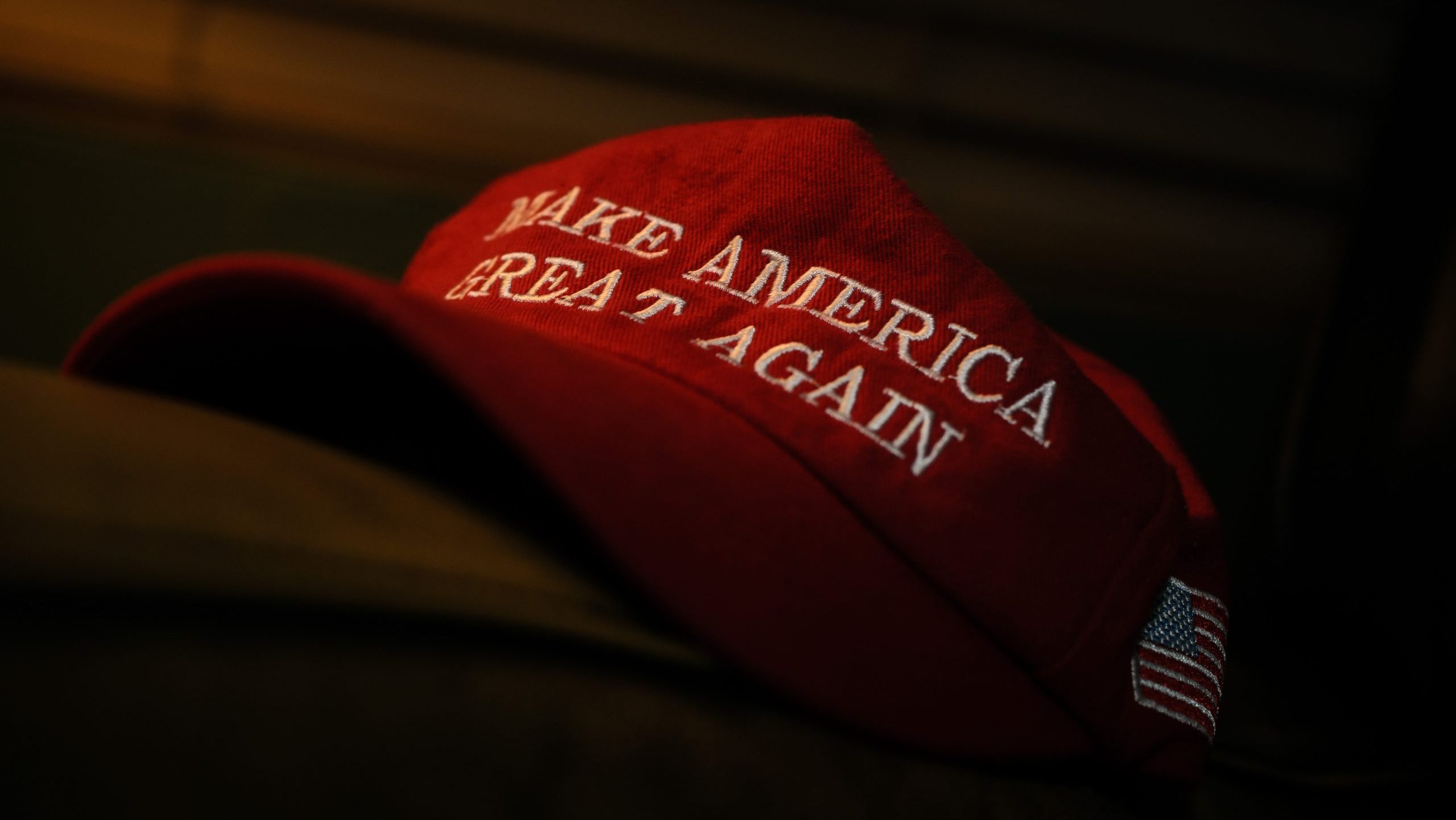As Election Day 2024 approaches, some of the editors of The Call got together to think through what the MAGA movement is and next steps for the left.
Is MAGA a Fascist Movement?
Jane Slaughter: Here are some possible attributes of a fascist movement:
- Belief in a charismatic and revered leader
- Scapegoating an ‘other’ that is responsible for the woeful state of the country
- Calls to purity of the blood
- Willingness to use violence
- Scrapping, in practice, of democratic norms (they don’t apply to enemies) (e.g., attempting to overturn elections by any means necessary)
- Authoritarianism—the leader should have his way without regard to other institutions
- Support from a section of capital that sees the usefulness of the movement
- Calls to a mythic past before things were ruined by the scapegoats
- Desire for women to know their place
- Belief that the leader can work miracles to remedy the situation
- Denunciation of elites and tributes to “the people” but deference in practice to business
- Intolerance of people organizing in ways other than in the fascist movement
- Exaggerated view of the ills of the country
- Use of religion when convenient
Ben Beckett: I agree that the MAGA movement fits most of the criteria Jane listed. However, I would add a caveat. It seems that most of the military and intelligence services do not like Trump, which is a huge hindrance toward building a truly fascist movement. Though it’s possible they could make peace since their objective interests are aligned, similar to Trump and big business in the first term.
Neal Meyer: I think the MAGA ideology more or less fits the definition that Jane provides (and I agree with Ben’s caveat). To me that’s sufficient to call it fascist. I don’t agree with those who try to restrict the label fascism to movements that take a specific organizational form. Those who say, for example, that a fascist movement must have paramilitary formations and a mass hierarchical party carrying out attacks in the streets. We wouldn’t say that only movements that have mass parties comparable to the socialist parties pre-1914 are “democratic socialist.” So I don’t think it makes sense to define movements ideologically by reference to their organizational forms. But I think it’s reasonable to say that, absent the strong mass organizations of 20th century fascism, today’s fascists pose comparatively less of a threat — for now. Just as today’s democratic socialists, lacking the mass parties of the 20th century, are also quite a bit weaker.
MAGA politics are also distinct from the conservative politics of the majority within the GOP pre-2008, though you can definitely see their roots in the long history of conservatism. Trump’s hostility to the neoliberal free trade agenda and his attempt to cobble together a right-wing, “pro-worker” agenda (even though, of course, it is a deeply reactionary one) are clear breaks from the Bush-era GOP. MAGA’s real forebear is the ultra-nationalist, paranoid, and protectionist tradition represented by the John Birch Society, Joseph McCarthy, Patrick Buchanan, and other fringe right-wing currents.
Stephen Crowe: I do think that it’s important to separate the questions of whether MAGA is fascist and whether it is dangerous, if only because the idea of “fascism” is such a powerful bogeyman in the popular imagination. My own opinion on the question is greatly influenced by the thesis that Corey Robin lays out in The Reactionary Mind and elsewhere, namely that the far-right movement that developed around Trump is only superficially different from those that elected Ronald Reagan or George W. Bush. On this I disagree with Neal. To take Jane’s list of fascist attributes, for example, I wonder how many of these attributes are unique to this movement? I’d argue that most of them could equally be applied to the Bush presidency — which, after all, successfully overturned an election result, endorsed the use of political torture, attacked civil liberties, and so on.
In many ways Trump seems to me far less of an ideologue than Bush, in fact it may be that he believes in nothing in particular except his own aggrandizement. Perhaps the only feature from the list that really differentiates him from his predecessors is the attacks on “elites,” which signals to me a shallow right-wing populism. (And even then, it’s not even all that popular: Reagan beat Carter by nearly 10 points and Mondale by 18, but Trump lost the popular vote twice.)
Clearly there are people with very extreme right-wing ideas in Trump’s orbit. But as we saw in 2016 and again with the Project 2025 fiasco, their views are political poison even among Republican voters. As the Harris campaign has rightly pointed out, it’s weird and they’re weird. And Trump, who is after all a populist who thrives on feeling and appearing popular, won’t hesitate to drop them like a stone when they become a political liability. (And again, Trump didn’t create these people, they absolutely existed under Reagan and Bush as well.) The mobilizations of actual neo-nazis and white supremacists which appeared to be growing unstoppably in 2016–18 actually petered out to practically nothing as they discovered that nobody liked them.
I don’t think that MAGA is fascist, and I don’t think that there is a fascist movement in the United States of any significance. Neoliberal capitalism is experiencing a crisis, but no new movement has emerged to challenge it. MAGA is not an alternative to neoliberal capitalism, it’s just the same old thing with some superficial new features. Which is of course not to say that Trump is not dangerous or that a second Trump presidency wouldn’t be terrible for the labor movement, for immigrants, for women, and so on; likewise it would certainly embolden far-right activists again, and lead to more right-wing violence.
Ben: I wonder if it is analytically helpful to call it fascism even if it might be accurate. It seems to make the problem more remote. Couldn’t we as well or better see the roots of Trump’s ideology in 20th century American racism and segregationism? These were (are) totalizing, authoritarian, and anti-democratic regimes, and they used the American vernacular and legal tradition. So perhaps that is a more helpful frame for us, even though Trump might not formally be a segregationist.
How Dangerous Is MAGA?
Jane: Although the question “Is MAGA fascist?” is quite interesting, the real question is “how dangerous is MAGA, whatever definition it fits?” (By MAGA I think we mean Trump’s most devoted followers, but perhaps it needs a better definition.)
Ben: I think Stephen’s point comparing Trump to Bush above is well-taken. In many ways, Bush was objectively (as opposed to rhetorically) much worse. But I would add an important point there, which also leads me to what I think our main task is regardless of whether we decide MAGA is fascist. The overall legal situation in the U.S. is much worse now than when Bush took office, which means that Trump and the right have much more room to maneuver. The federal judiciary has been almost entirely captured by right-wing activists, who treat it as a kind of Iranian-style super-legislature. When no mass unrest followed the overturning of Roe, it became clear to them just how far they could take things. It’s a bit arcane, but the legal fights over Biden’s student debt plans have shown that the judiciary is willing to more or less (without saying it) treat Democrat-backed legislation in and of itself as illegitimate.
Neal: If MAGA’s international brethren and Trump’s first term are any indication of what it would do in power, we can make some reasonable predictions about what Trump and MAGA returning to power might look like. First, towards labor and popular movements, they pose a significant threat. In power again Trump would crack down on mass demonstrations, curtail labor’s legal organizing opportunities, and harass left-wing organizers and organizations. Second, on the international front everything Trump says and does suggests he would expand support for Netanyahu and Israel, and his election would presumably strengthen the Israeli far right even further. There would also be an increased protectionist policy, though I doubt Trump can get away with all that he’s promising because the inflationary consequences would be hard to tolerate.
Third, on migration policy, it’s hard to see how he could pull off mass deportations without wrecking the economy. But at a minimum Trump would follow the international example of Meloni: that is, dealing out harsh punishments to a small minority of immigrants (the scapegoats) and slowing down the entry of more. Fourth, a setback for anything resembling a transition to renewable energy. Although, as The Economist recently pointed out, under both Trump and Biden renewable energy and oil and gas production increased without much difference, raising the question of how different the two parties’ agendas for the energy transition really are. Fifth, making the Trump tax cuts permanent, severely constraining any future administration’s room to finance new social programs. Sixth, I doubt they would try to ban abortion nationally, but abortion rights would continue to be attacked at the state level. I do think they would go after trans rights in a pretty brutal fashion. Seventh, a continued slow chipping away at democratic norms. And eighth, the far right would be emboldened, and attacks on immigrants, people of color, queer people, and movement activists would increase.
The maddening thing is that on many of these policies — the Middle East War, immigration, the energy transition, taxes — Harris and the Democrats are swinging further to the right in this election. But on the critical questions of hostility to popular movements and organizing, the preservation of some semblance of democratic norms, and the emboldening of far right violence, I do think there’s still a big difference between the two parties. Additionally, if Trump wins the far right all over the world will be strengthened, which is a significant concern we should not take lightly. I try to talk to leftists from around the world and read what they’re writing pretty regularly, and this is a major fear for many.
Jane: I find Neal’s speculation on what will happen to immigrants quite interesting and plausible. Draw enough blood to look like you’re doing something but don’t disrupt the workforce. On the slow chipping away at democratic norms — I would not expect it to be so slow. Although at the NLRB and in the courts, it does take time for cases to wind their way to a hearing, and with the Board he cannot just replace all the members at once; they have terms. And on the emboldening of attacks on all sorts of people — in spades! Think of the book bannings, the trans scapegoating, much, much more.
Ben: There are also a lot of indications in the press that Trump’s staff have learned a lot of lessons from his first term and would go into a second with a much more effective strategy. The question is whether Trump himself will go along with it or throw a monkey wrench in the whole thing. Here is a rundown of things Trump has said he wants to do, and I see no reason not to take most of them at face value. My guess is the courts will go along with the majority of these ideas, while somewhat restraining those that directly attack big capital. We should look at those things in particular that the executive can do unilaterally, because I am guessing the GOP will not sweep Congress. That means we should also expect more government shutdowns if Trump takes office.
My guess is that the white power militias will not get as much attention as they did in the first administration. As has already been pointed out, they already more or less went away by 2018 when it became clear how unpopular they were. Since then, they have undergone a lot of infighting and prosecution; furthermore, a key question in the modern white supremacy movement is whether Jews are white people. With the GOP thinking they have an opening and trying, frankly desperately, to peel Jews off from the Democrats this cycle, they are not going to want that debate out in the open.
It is more likely that local police and certain federal police agencies will serve as Trump/MAGA shock troops, along with Zionist thugs in certain contexts like at UCLA this year. Police, of course, hardly need encouragement to attack the left, but they certainly received plenty of it anyway over the last year from Democrats, from the White House on down. It will be worse with Trump, who always speaks in front of police unions and explicitly sees them as an important part of his base. In my opinion, one of Trump’s worst proposals is to increase the number of ICE agents and also to deputize police from friendly regions to come to big cities and do crackdowns on immigrants on the street.
Stephen: I agree with Ben that the threat of the Right as a mass social movement is pretty insignificant. I think that Trump’s celebrity and brash rhetoric lent a burst of populist energy to an otherwise fairly standard conservative movement, whose real danger lies in minoritarian institutions of power like the electoral college, the judiciary, the police, etc. These are the institutions that we should be siding against, irrespective of which party is controlling them.
What Can the Left Do
Jane: Well, what do we do about it?
Neal: We have to start with the election next month. While I accept that it won’t matter much for the outcome what DSA’s leadership says or does, many of our comrades are in unions or social movements and/or live in battleground states and know many people in those states. For them what to do about the election does matter. I think the argument for lesser-evil voting in 2024 is compelling because we don’t want to take the risk of a second Trump term. Most of us believe, quite reasonably, that if a mugger says “I have a gun,” we should take the threat seriously, even if we can’t see the gun. I’m for following a similar logic in 2024. I have no illusions about Kamala Harris, and I think in particular that on the Middle East War and the genocide in Gaza she and Biden have been atrocious. But even when we think about what’s happening in Palestine and Lebanon, Trump will almost certainly be much worse, as many in the Palestine solidarity movement in the U.S. are warning. Who to vote for in an election is not a question of principle. It’s a question of tactics. Sometimes the right thing to do tactically feels shitty, but it’s still the right thing to do to move us closer to achieving our bigger goals.
Ben: Socialists in 44 or 45 states should vote for Jill Stein to register the biggest protest vote against the U.S.’s direct support for genocide. If I vote, it will be for Stein. Socialists in the five or six states where it might impact the outcome should vote for Harris. We will have a very miniscule impact on the election, but we can have an outsized impact post-election, where organizing skills and agitation will matter more.
We should not ignore the possibility of Republicans trying to throw the election to Trump if he loses, and whatever our thoughts on Harris, we should mobilize extremely aggressively against this. In particular, we should look to swing states that have a Republican secretary of state, and also be prepared to protest a sham federal court case. If this happens, we need big, fast mobilization around a minimum demand (“Protect democracy” or “Count all the votes”), both to show the judiciary there will be societal consequences to a corrupt ruling and to make sure Dems keep their spines straight. We should be ready to do a “Brooks Brothers riot” in reverse or to make a big protest in D.C. if Congress is set to certify sham results. I think this is extremely critical, and we ourselves and history will look back on it as a major turning point if we fail to build a big and aggressive resistance to a stolen election.
Beyond that, what we should do will be dictated to some extent by what Trump does, but it is important that we try to seize the initiative. Over time, many new socialists’ healthy skepticism about the power of street protests has gradually moved toward a dogma that they’re useless. I disagree with that, and especially in a period like the beginning of a Trump administration, but they will need to be even more sizable and disruptive than in 2017. His administration spiraled for weeks because of the inauguration protests (at the time most administrations are rocketing their agendas), and the airport occupations pushed back some of the absolute worst and most racist of his policies. Trump and his cadre will have learned from those events. Will we?
Jane: The left-wing organization Liberation Road argues that allying with any and all in a popular front to defeat Trump will actually make the left stronger, because the left will be the best builders of the anti-fascist movement and people will be drawn to us. In my opinion this is fantasy — the left is too small for most people to notice whether we are the best builders, and now with the Harris train, there will be so many builders that it would be silly for the left to try to claim credit if she wins. (Maybe the cat ladies should claim credit.) That fact would not change Liberation Road’s analysis, however, as their main point is that MAGA represents a really, really scary fascist movement.
Stephen: We need to be able to speak truthfully about how heinous MAGA is without foreclosing our ability to fight for our own political vision, which is the trap that the so-called “popular front” strategy, that DSA’s Socialist Majority Caucus is advocating, falls into. The supposed coalition that we’re supposed to be the “junior partners” in doesn’t really exist: like the Mad Men meme, they don’t think about us at all. And they’ll never have to as long as we fall in line exactly at the moment when we might have the most leverage. As Jane says, we cannot distinguish ourselves by being the best foot soldiers for Kamala.
Since 2016 we’ve been stuck in a hamster wheel, in which every presidential election is about the Fight for Our Lives and the Future of Democracy. The only way out is not to be distracted by whatever new disguise the Republicans wear to reinvigorate their aging voting base. The role of socialists should not be to endorse the major parties’ obsession with their small differences but to seek to reveal their similarities. To do that, we need to abandon the word “fascism,” which simultaneously acts as a practically meaningless negative epithet and an unanswerable trump card (sorry) that precludes rational argument.
Another question I want to raise: what if Trump loses? After a second loss, I think that both Trump and MAGA would largely be a spent force. On the one hand, this would give us some space to re-evaluate our approach to the right and the way it influences our relationship with the Democrats. But at the same time, a Kamala presidency will place the left in a difficult position, as we’re confronted with a ruling class and a news-fatigued population who are equally keen to return to the pre-Trump status quo ante.
In the end, it may be that there are specific Republican candidates who are so terrible that it makes sense to unite against them. But for the most part, I think we should focus less on the threat of the right. Instead, we should try to reclaim the mantle of anti-establishment populism that Trump was able to steal to some extent in 2016. In all honesty, I’d love to see a broad left movement that behaved a little more like MAGA or the Tea Party: less fixated on acting like grownups and getting results, and more on becoming the home for frustrated working-class voters to register their protest with the status quo. It’s possible that left-wing voters remain either too disaffected or too compliant to behave this way (otherwise why didn’t Bernie win?), but I’m skeptical that the left will make much headway until they — and we — are ready to risk flirting with disaster.
Ben: Regardless of who wins, I think one of our main tasks is to delegitimize the power of the judiciary in the public eye. It will be a more acute problem if Trump wins. We need to undo the very deep conditioning that 1) judges are impartial and 2) judicial review means judicial supremacy. In short, as long as we live under the legal constitutional regime we live under, we are not going to see any lasting pro-worker reforms unless we can convince liberals of the need for a showdown with the judiciary. Absent smashing judicial supremacy, we will continue the slow slide deeper into harder or softer authoritarianism.
Neal: We should also be thinking about these questions in the bigger picture. MAGA is a product of the post-2008 crisis, a response to the end of neoliberal capitalism as a stable form of capitalism, and — in its own disturbing, denialist way — an answer to the developing climate catastrophe. These developments are all global phenomena as well. No new form of capitalism has replaced neoliberal capitalism since the global financial crisis. The pressure of the climate catastrophe that has begun to unfold is real — everywhere. The world is now in an “interregnum” period between an old model of capitalism and something new.
All over the world there’s a fight between different social and political forces to shape what comes next. In the U.S., Trump and MAGA represent the far right, “fascist” option. The Democrats represent the centrist option — basically, repackaging neoliberal capitalism “with a human face.” We as democratic socialists and labor activists need to put forward the third option. But we have a lot of work to do before people will see us as offering a distinct, independent option for the future.




